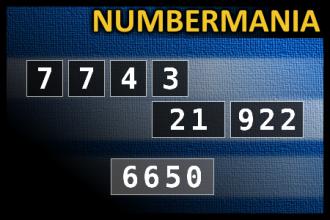Calculate the number 6650
NUMBERMANIA: Calculate the number 6650 using numbers [7, 7, 4, 3, 21, 922] and basic arithmetic operations (+, -, *, /). Each of the numbers can be used only once.Correct answers: 40
The first user who solved this task is Sanja Šabović.
#brainteasers #math #numbermania

